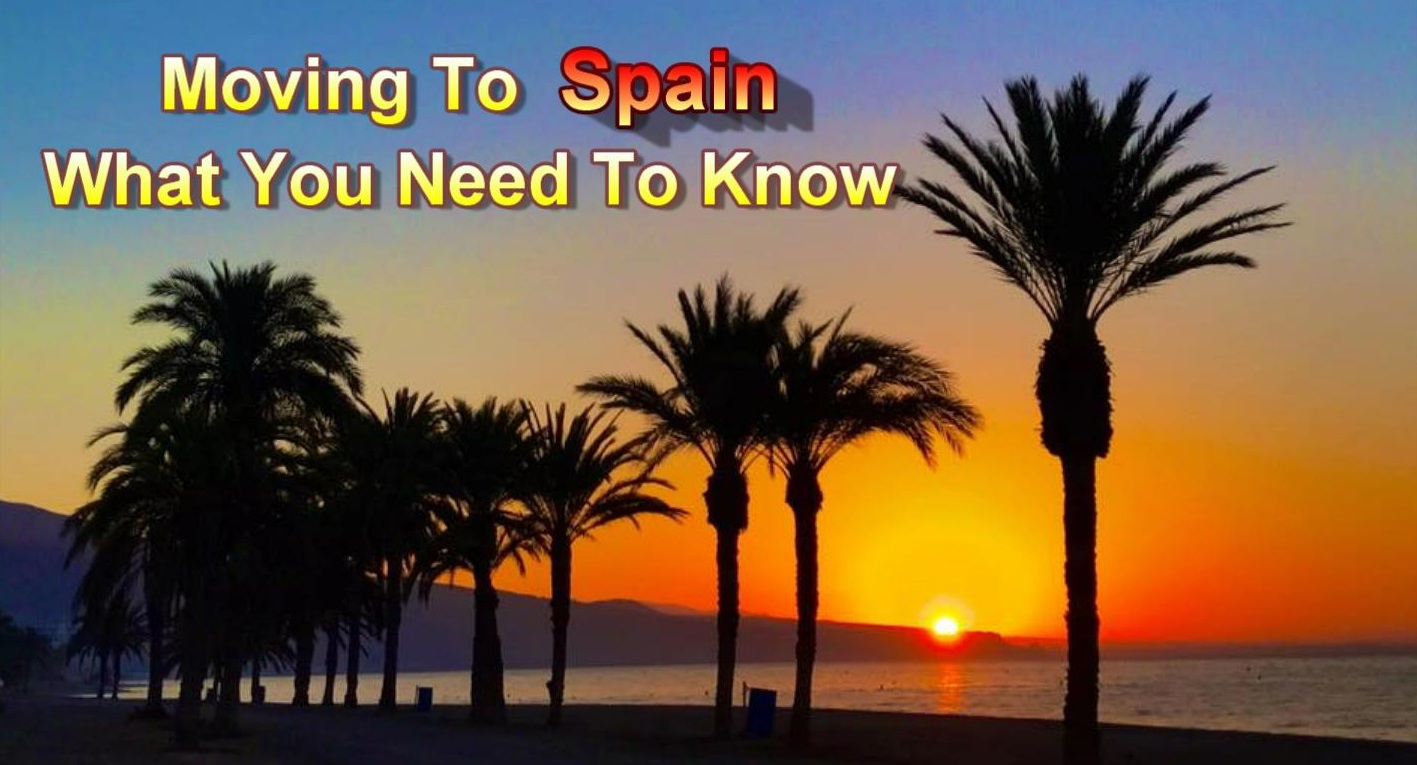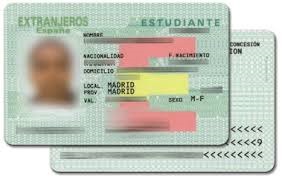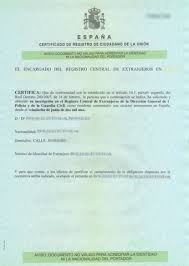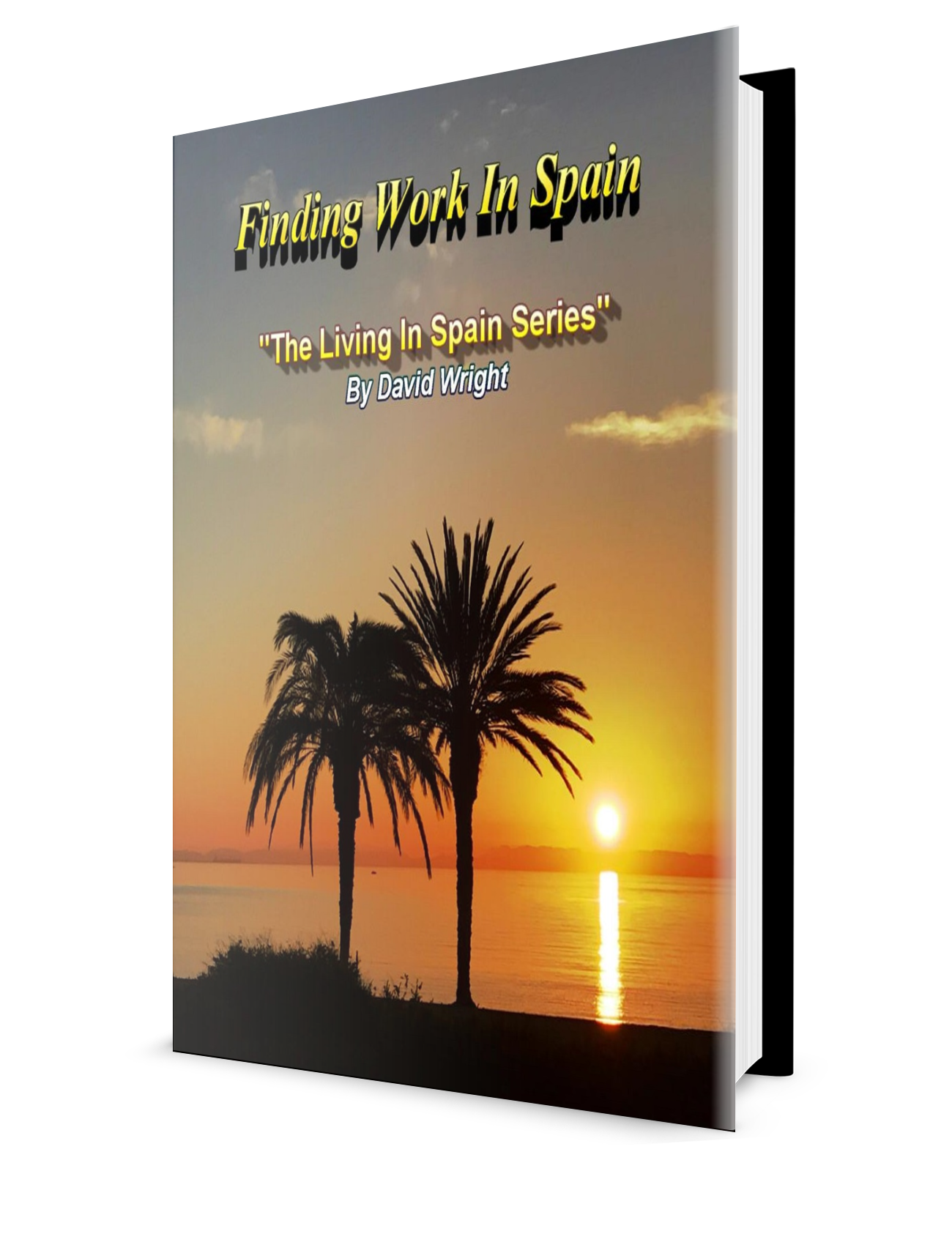 |
 |
Registering your residence abroad – Spain
British nationals planning on staying in Spain for more than
3 months must register as a resident and on the padrón at their town.
As an
EU citizen you must register as a resident if you plan on living in
Spain for more than 3 months.
You should register in person at the Oficina de Extranjeros (immigration office) in the province where you live or at the designated police station.
You
will be required to provide documents to support your appplication -
see an English language summary of the documents you will need to bring
With Brexit changes we try to update this site weekly.
The Honorary British Consulate in Almeria is Alejandro, He is a personal friend of mine for many years see the videos i did with him a few weeks ago.
See these important videos here
What they will ask for...
you have a salaried position or you are self-employed in Spain
§ or you can support
yourself and your family, and you have a public or private health insurance
that provides full cover in Spain
§ or you are a
registered student at an educational establishment recognised by the Spanish
authorities, and you can support yourselft and have a public or private health
insurance with full cover in Spain
§ or you are a family
member of an EU national that mets one of the previous conditions. The family
member can be:
§ If case of a
student: his/her spouse or common-law partner, or his/her children
§ In other cases:
his/her spouse or common-lay partnr, his/her children or spouse´s children up
to 21 years old or incapable or his/her ancestors.
Moving To Spain all you need in one place
FREE download for Kindle owners
Registering with the Central Register
Do this in one of 2
places:
§
the Register's local office oficina
de extranjería![]() in the province where you are
living
in the province where you are
living
§
in your local
police station![]() (if the Register has no local
office in your province)
(if the Register has no local
office in your province)
What you need to take
You have always to
attach the following documents:
§ Passport or other
identity document (not expired)
§ Oficial form
(EX-18), two copies, filled and signed by the UE national.
In adition, you will
have to attach other documents, depending on your situation:
§
salaried workers – your contract of employment
or other proof of your employment status.
§
self-employed workers – proof of registration in the
register of economic activities (censo de actividades económicas) or other
proof of your employment status.
§
not in employment in Spain? Proof of:
§ (i) health cover
valid in Spain and
§ (ii) sufficient
means to support yourself and your family.
§
Pensioners – provide proof of public
health cover.
§
students –
§ (i) proof of your
registration in an educational establishment,
§ (ii) proof of
public or private health cover and
§ (iii) formal
declaration that you have sufficient means to support yourself during your
stay.
What is an N.I.E Number?

N.I.E.
is an abbreviation for Número de Identidad de Extranjero, which
translates as Identification Number for Foreigners, or Foreigners’
Identification Number if you prefer.
The
NIE is your all-purpose identification and tax number in Spain. You
need it for everything that involves a tramite or
official process in Spain. For example, you will need an NIE number to
buy a property, buy a car, get connected to the utilities and, most
importantly as far as the Spanish state is concerned, pay your taxes.
Without an NIE number, the Spanish tax authorities are unable to assess
or process annual tax payments such as income tax (IRPF), and the
annual wealth tax (Patrimonio), both of which are declared by resident
and non-resident property owners.
NIE
number certificates were being issued with a 3-month validity from
the time of issue, after which you were expected to apply for
residency, or register as a non-resident. So after three months the
certificate was no longer valid, at least in principle. However,
in mid-2016 the regulation was changed to eliminate the three-month
expiry deadline, so NIE numbers are now valid indefinitely. But this is
Spain and the bureaucracy is a bit of a mess, and regulations are not
uniformly implemented or even understood. You may find that some
notaries refuse to accept a certificate that is older than three
months, which could cause problems for property buyers trying to sign
deeds more than three months after obtaining their NIE certificate. In
principle you can get your NIE number anytime before you buy, but to be
on the safe side you might want to sort out your NIE number on your
last trip to Spain, when you find a property you want to buy and can
complete within three months.
If
you are an EU citizen and spend longer than 3 months in Spain after
getting your NIE number, you are required to register and get a
government certificate that shows your NIE number.
Who needs an NIE in Spain?
1.
Any foreigner who becomes resident for tax purposes in Spain needs an
NIE number in Spain.
2.
Any non-resident foreigner who buys property in Spain. If a couple buys
a property in Spain together, and they register the property in both
their names, then both of them must obtain an NIE number in Spain.
3. Anyone who wants to work in Spain, or start a business in Spain.
Need to find work in Spain?
My new books on Amazon
Link to my online training website in the finding work in spain copy.
When do you need to have an NIE number?
If
you are buying property in Spain, then you need to have an NIE number
by the time you sign the deeds of purchase before notary, an event
known in Spanish as the escritura.
Getting
your NIE number in time for escritura means
applying at least 1 month before hand if you are
applying in Spain, and at least 2
months before hand if you are applying via a consulate abroad. The
actual time it takes depends upon where you apply, and the time of the
year. You might be able to get an NIE number in person in Spain in a
couple of days, but it could also take weeks, so best allow yourself
plenty of time.
How do you apply for an NIE number?
The
first thing to understand is that dealing with the Spanish bureaucracy
is often a perplexing, not to mention frustrating affair. The way they
interpret the regulations in Andalusia might differ from the way they
interpret the same rules in Catalonia. In one area, for example
Barcelona, you need to book an appointment online in advance to request
your NIE number, then spend hours waiting in a queue, whilst in other
areas you can just turn up and get everything done in half an hour. I
have confirmed for myself that the rules are inconsistently applied,
which makes it difficult to prepare a guide to NIE numbers.
So
keeping in mind that the process and interpretation of requirements
might be different depending on how and where you apply for an NIE
number, here is a general guide that explains the official requirements
and the process as it should work (but might not)
There
are three ways to apply for a Spanish NIE number:
1.
Apply in person in Spain.
2. Apply in person via a Spanish Consulate abroad.
3. Apply through a representative in Spain
1. Applying for NIE number in person in Spain
Applying
in person for an NIE number whilst in Spain is a relatively
straightforward procedure. The only inconvenience is that you may have
to wait for several hours in a queue in order to submit your
application at a Spanish police station. It does depend upon the police
station where you apply, and the time of day (early is better). With a
bit of luck you will be in and out in half an hour or less.
The
process is as follows:
1)
Prepare the necessary documentation:
- All applicants: Two copies
of the Ex-15 application form filled out and signed . The Spanish name
for the NIE form is Solicitud de Número de Identidad de
Extranjero (NIE) y Certificados (EX-15), and you can download
this NIE application form by clicking on the link below.
- All applicants:
An original document (plus a photocopy) that justifies your reason for
applying for an NIE number, such as a private purchase contract for a
property, deposit contract, or a mortgage approval.
- EU nationals:
Your passport and a photocopy of the main page of your passport (the
page that includes your photo, name, passport number, address, etc.).
- Non-EU nationals: Your passport and a photocopy of your entire passport (all pages), plus proof of your legal entry into Spain (for instance a landing card, known in Spanish as a declaración de entrada or a título de viaje or cédula de inscripción). Some Oficinas de Extranjeros might accept a valid entry stamp in your passport as proof of legal entry. To be on the safe side non-EU nationals might also want to take along two recent passport size colour photographs with a plain coloured background.
Residence permit

Residency
requirements
From
28 March 2007, Royal Decree 240/07 requires that all EU citizens
planning to reside in Spain for more than 3 months should register in
person at the Oficina de Extranjeros in their province of residence or
at designated Police stations. You will be issued a credit card size
Residence Certificate stating your name, address,
nationality, NIE number (Número de Identificación Extranjero)
and date of registration. After five years residence registration you
are entitled to apply for a certificate of permanent residence in Spain.
More
details can be found on the website for the Spanish Ministry of the Interior (information
is in Spanish).
Changes
to the residency regulations
On
10 July 2012 the Spanish government introduced details of the new
residency requirements for all EU citizens, including British nationals.
Under the new rules, EU citizens applying for residency in Spain may be required to produce evidence of sufficient financial means to support themselves (and dependants). Applicants may also be asked for proof of private or public healthcare insurance. More details about the application process and documentation you need are available on the website of the Spanish Ministry for Work and Social Security.
How and where to find work in Spain
eu
citizens
Since
1 March 2003, two groups of EU citizens no longer need to hold
residence cards: people legally working in Spain and paying Spanish
Social Security; also, retired workers entitled to a Spanish State
pension who have lived in Spain for more than three years and have
worked in the 12 months prior to retirement.
Everybody
else should apply for residencia.
EU
citizens no
longer need to show proof of income or medical insurance. However, they
will need to present:
· completed
application form
· four
photographs
· passport
plus photocopy
non-EU
citizens
Non-EU
citizens will
need:
· the
visa or visado de residencia obtained from the Spanish
consulate in your home country;
· proof
of financial means;
· certificado
de antecedentes penales showing
you have no criminal record;
· medical
certificate - necessary for obtaining the visa;
· consular
inscription;
· medical
insurance with a company which has offices in Spain;
· passport
plus photocopy;
· three
passport-size photos;
· payment
of fee (not high);
· Spanish
bank statement showing income arriving from abroad;
· deeds
to Spanish property or a rental contract, plus photocopy;
· completed
application form.
Information
on Spain - miscellaneous
Non-EU
citizens requesting the unified work permit/residence permit will need
further documents relating to their employer.
Your
residence permit will include a número de identificatión de
extranjero (NIE), which identifies you to the Spanish tax
authorities.
Many
EU citizens I know shy away from taking out their residencia.
This is not a good idea for, if living in Spain, there are tax
advantages in being resident and, for EU members, application is not a
complicated process.
For
those who do not want the bother of dealing with it themselves, it
doesn´t cost an arm-and-a-leg to use the services of a gestor (licensed
administrative expert).
So ... go ahead and take the plunge! You now have most of the information on Spain necessary to obtain your residencia, so ... get yourself legal!
If this has been Helpful please share or comment on our new >Facebook Page Here<
If this has been helpful to you, Help us with running costs of
this site and keep all this info free, you can leave a tip here..
Ready to start learning Spanish now?



